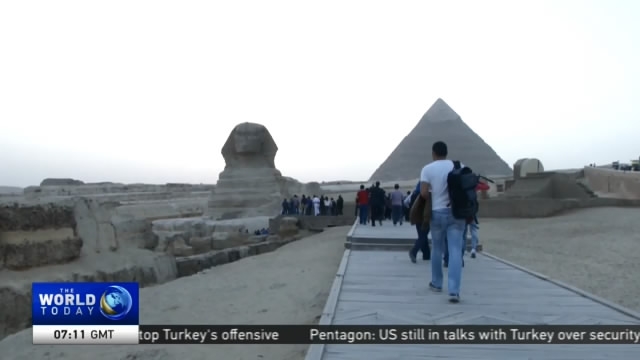
15:47, 26-Jan-2018
Arab Uprising Anniversary: Seven years since the toppling of Hosni Mubarak

Meanwhile, Egypt is marking seven years since the Arab Uprising that toppled Hosni Mubarak. The country's still facing many of the same challenges it did back then. But it's also made a lot of progress. CGTN's Yasser Hakim takes a look at Egypt's growth and development since 2011.
When they went down the streets in 2011, Egyptians were calling for political freedom and better living conditions. But it's been a rough ride. One major challenge was the surge of terrorism.
KAMAL EL BOLOQ JOURNALIST, AL-WATAN "The reforms were implemented to halt the deteriorating economy, which has been in trouble since before 2011. Huge subsidies and loans were eating up the budget. The reforms have taken a toll on citizens, but they were the only way to avoid bankruptcy and total breakdown."
The Egyptian president had promised to eradicate terrorism from the country soon. The economy has been another victim of the political instability after the uprising. Tourism, a major source of hard currency has been hit hard, state revenue, foreign reserves and economic growth also went south. The government had to embark on tough austerity measures to rebuild the economy.
KAMAL EL BOLOQ JOURNALIST, AL-WATAN "The security vacuum after 2011 allowed for an influx of terrorists and weapons across the borders from Libya and Sudan. Some Egyptian militants joined ISIL in Iraq for instance, and then returned to operate here. You have to remember the outlawed Muslim Brotherhood was first formed in Egypt. All the Islamist and extremist groups around the world are essentially branches of the Brotherhood."
The uprising, however, guaranteed more freedom of expression and free elections. It also saw two former presidents, Hosni Mubarak and Mohamed Morsi, put behind bars, personifying that no one is above the law anymore.
YASSER HAKIM CAIRO "The last seven years have been a burden on Egyptians, they hope the tough times are nearly over and they can bear the fruits of the 2011 uprising soon. Yasser Hakim, CGTN, Cairo."

SITEMAP
Copyright © 2018 CGTN. Beijing ICP prepared NO.16065310-3
Copyright © 2018 CGTN. Beijing ICP prepared NO.16065310-3